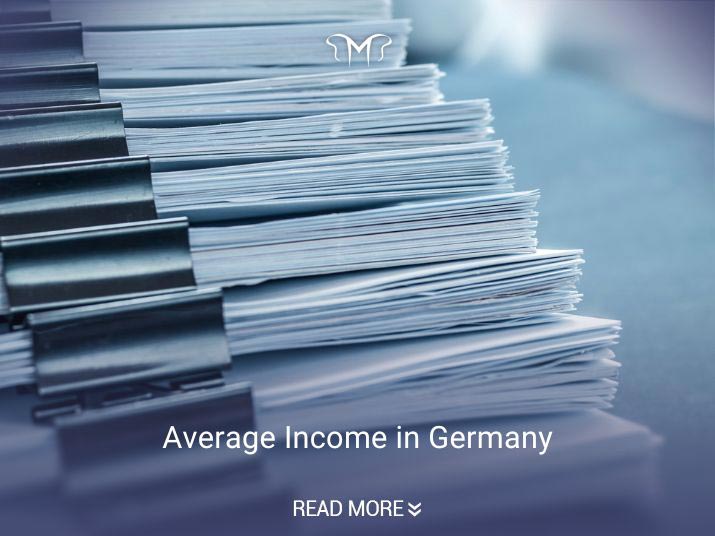
ZAB Certification for Work Migration to Germany
If you want to apply for a job in Germany or are looking for a student visa, you will need ZAB certification to validate your documents. Of course, having an educational degree, skill certificates, and German language proficiency also plays a key role in this process. However, in Germany, having a degree alone is not enough. Before you can use your documents, you must officially register them with ZAB certification. In this article, we will explain how this important process works for obtaining general job certifications, specific job certifications, and educational certifications from ZAB. This will help all those interested in migrating to Germany to enter the job market or university in the shortest time and with the least concern. We invite you to join us.
What is a ZAB Certificate?
In an ideal world, all educational qualifications would be treated equally, and employers or states would simply trust job seekers or those eager to continue their education. However, in reality, educational systems and the quality and depth of degrees vary. So, what is ZAB? In Germany, the validation process allows job seekers to compare their qualifications with their German equivalents. This is an official process mandated by federal law, and if your qualification does not match, you may need to undergo additional steps, spending more time and money.
In the German academic world, an organization called the Central Office for Foreign Education (ZAB - Zentralstelle für ausländisches Bildungswesen) plays the role of a validator to prove that you are qualified to work or study in this country. If you intend to work or study in Germany, you may need to obtain ZAB certification. The Central Office for Foreign Education (ZAB) is the federal states' accreditation center for the recognition of foreign certificates and degrees. Currently, about 150 employees work in this office, speaking more than 40 different languages. In other words, a ZAB certificate is an official acknowledgment of your professional or academic qualifications by German authorities.
Why is ZAB certification important?
Certification of documents by ZAB is essential because it can be a legal requirement for employment in certain professions in Germany. If your profession requires a government license or accreditation, you must obtain ZAB certification to ensure that German authorities recognize that your foreign educational qualifications meet the same standards as German qualifications in your field of study. Additionally, ZAB certification in Germany can be beneficial in improving your job prospects and salary expectations. In fact, with ZAB certification, whether for a work visa or for the validation of educational documents in Germany, you can show potential employers that your qualifications are recognized in Germany and that you are qualified for the position you are applying for.
Types of ZAB Certifications in Germany
There are two types of ZAB certifications:
1. General ZAB Certification
This type of certification applies to individuals who wish to work in professions that do not require a government license or formal recognition. A general certification indicates that your foreign qualifications are equivalent to the relevant German certificates or diplomas.
2. Specific Occupations Certification
This type of certification is for individuals who want to work in a specific academic profession, such as medicine, law, or teaching. The specific occupations certification shows that your foreign qualifications meet the necessary requirements to obtain government licenses or formal recognition in Germany.
You can apply online to have your foreign educational qualifications assessed from zour country. An official certificate evaluating foreign qualifications makes it easier for employers and reduces their concerns. The ZAB (Central Office for Foreign Education) issues equivalence certificates for the federal states of Baden-Württemberg, Berlin, Lower Saxony, and Saarland. This means that individuals who wish to work in one of these federal states must apply for the process of assessing the equivalence of their professional qualifications. The professional qualifications must align with a German legal profession regulated by state law. If necessary, the recognition authorities of the federal states can request an expert opinion and compare the foreign qualification with the German qualification in a separate session.

Required Documents for ZAB
Documents Needed in the ZAB Credential Evaluation Process:
Educational Credentials
The process of validating educational credentials is different from professional credential validation and does not fall under the Federal Recognition Act, which lists regulated professions. Different procedures apply for educational credentials. For the validation of international academic degrees, the higher education institution or university to which you are applying is responsible for ensuring that your credentials are sufficient. This means that German universities are relatively strict about ZAB approval as they aim to maintain a high-quality student body. Therefore, you must provide a copy of your diploma or graduation certificate. ZAB evaluates the content of the diploma or certificate to determine its equivalence to German qualifications.
However, academic degrees are not the only credentials that immigrants to Germany might need to validate. Transcripts and language skills are also important in this process. Additionally, not all academic credentials from around the world have the same weight, and comparing different educational systems can be complex. For this reason, various tools such as the Anabin database or DAAD have been developed to simplify the educational migration process to Germany.
University Transcripts
You must also submit your university transcripts to ZAB. Transcripts should provide detailed information about the courses you have taken and the grades you have earned. In most cases, admission officers use a tool called Anabin, managed by ZAB, to review academic credentials and transcripts. Anabin is a comprehensive and up-to-date database of educational qualifications from around the world, developed to verify if your academic credentials meet German standards. The Anabin database is very extensive, increasing the chances of your credentials being covered. It also helps to contact ZAB offices across Germany for any additional questions.
Proof of Professional Experience in Your Field
If you are migrating to Germany for work, you must provide valid certificates and documents from qualified institutions to present to ZAB offices in Germany.
Proof of German Language Skills
Depending on your profession, you may need to provide evidence of your German language proficiency. You can present this proof by taking German language proficiency exams such as TestDaF or Goethe-Zertifikat.

Steps to Apply for ZAB Certification
To obtain ZAB certification, you need to follow several steps:
1.Determine the type of ZAB certification you need: If your profession requires a government license or accreditation, you must apply for that specific certification. If your profession does not require a government license or accreditation, you should apply for general validation.
2. Collect your documents: Once you've identified the type of certification you need, gather your documents. This includes a copy of your foreign degree or certificate, university transcripts, proof of work experience (if applicable), and proof of German language skills (if required).
3. Complete the ZAB application form: This form is available on the ZAB website and requires personal information, educational background, and other relevant details.
4. Pay the application fee: You must pay the fee to submit your ZAB application.
5. Submit your application and documents: After completing the application form and paying the fee, send your application and documents to ZAB. Depending on the type of application, you can do this by mail or electronically.
6. Wait for the evaluation: The evaluation process can take several weeks to several months, depending on the complexity of your case. ZAB will assess your foreign qualifications and compare them with the corresponding German qualifications. Once the evaluation is complete, you will receive a ZAB certificate confirming your qualifications.
For certain professions, such as doctors, dentists, and nurses, ZAB certification is mandatory before applying for a government license in Germany. Other professions, such as engineers, architects, and teachers, may also require ZAB certification depending on job requirements and employer preferences. Although not always necessary for other jobs, having ZAB certification can enhance your job prospects. Additionally, some employers may prefer candidates with ZAB-certified qualifications as it indicates that the candidate meets similar standards to those trained in Germany.

Summary of ZAB Certification
1. ZAB (Zentrale Auslands- und Fachvermittlung) certification confirms that foreign academic and professional qualifications are equivalent to German standards, essential for those wishing to work or study in Germany.
2. Obtaining ZAB certification is a legal requirement for professions requiring state licenses or validation, improving job prospects and salary expectations. The process can take weeks to months, so early application is crucial.
3. To apply, submit the application form available on the ZAB website along with necessary documents. The certification fee is 485 euros. ZAB's reliable service ensures consistent and transparent validation across Germany's federal states.
How Can I Apply for an Equivalent Certificate from ZAB, and What Is the Cost?
Information on equivalent certification is available on the ZAB homepage. Applications are submitted via an application form found on the website, which must be completed, signed, and sent with foreign certificates and other required documents by post or online. The fee for obtaining the equivalent certificate is 485 euros, usually paid by the applicant.
Why Is ZAB Important?
For decades, ZAB has collaborated reliably with German authorities as the central office for recognizing foreign higher education qualifications. ZAB's services ensure a consistent, transparent, and high-quality validation process across Germany's 16 federal states. By leveraging its expertise in foreign education systems, ZAB contributes to clarity in recognition processes, especially when specialized knowledge of a particular educational system or certificate is required.
Are My Qualifications Recognized in Germany?
If you obtained your academic or professional qualifications outside Germany, you need to verify their validity in Germany through ZAB. University and school degrees can be checked via the official Anabin portal to see if your institution and degree are listed for recognition. If your qualifications are valid in Iran, don't worry; the German government aims to attract qualified professionals. Professional recognition ensures only those with genuine skills and qualifications can apply for German jobs or university courses. Sensitive fields like medicine, nursing, law, teaching, pharmacy, food technology, and psychotherapy have strict validation regulations, with slightly less stringent rules for architects and engineers.
For postgraduate applications, ensure lower-level qualifications are also recognized. If not equivalent to German standards, your certification request may fail. Academic degree validation is often part of most visa applications, so both job seekers and aspiring students should be aware. The validation process compares your qualification to a similar German one, and once recognized as equivalent, it boosts your chances in the job market.
Note: Sometimes, additional documents (e.g., training location, job offers) may be required to prove your intent to pursue professional or vocational training in Germany.
Summary of ZAB Certificate in English
The ZAB certificate (Zentrale Auslands- und Fachvermittlung) is an accreditation that confirms the equivalency of foreign academic and professional qualifications in Germany. This certificate is essential for individuals seeking employment or further education in Germany. ZAB evaluates documents according to German standards and determines their equivalency.
Translation of How to Verify if Your Graduation Certificate Qualifies for ZAB
To determine if your graduation certificate qualifies for ZAB recognition, students often find the information quickly by checking the website of their desired institution or university. If uncertain about whether your credentials meet the criteria, contact the admissions office directly for clarification.
Additionally, your graduation certificate may need recognition by a foreign authority. These offices are located in all major German cities, and a complete list of locations and contact details is available through the Anabin database.
If your qualifications are not recognized, don't be discouraged. Courses at Studienkolleg institutions can help applicants meet the required standards and gain deeper insights into German language and culture.
To check if your degree is recognized, go to Anabin, use the search engine, select the country where your degree was awarded (Iran), and scroll to find your degree type. Click on your degree type to view additional information (in German). If you see the term "Direkter Zugang" (direct access), it means there is no issue. If you see "Feststellungsprüfung," additional documentation might be required.
If this happens, don’t panic. Contact ZAB. You may need to provide a notarized copy of your degree certificate, but this is often a minor issue due to gaps in the Anabin records.

Closing Remarks
Are you ready to expand your educational or business horizons and venture into the dynamic German market? Having ZAB certification ensures a smooth and stress-free path to career and academic migration to Germany. Our expert team is prepared to guide you through every step, from visa application to residency in Germany, ensuring your success in this field. Don't miss out on this opportunity—join us today.


